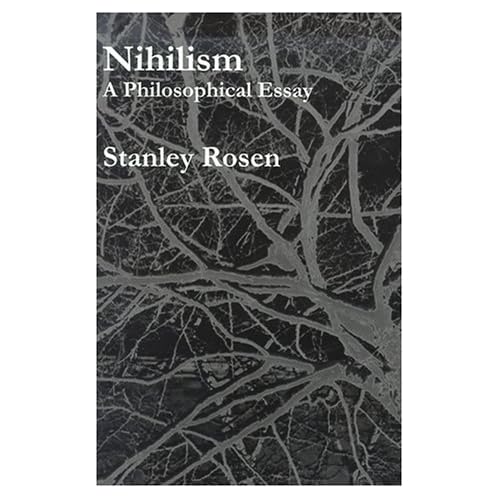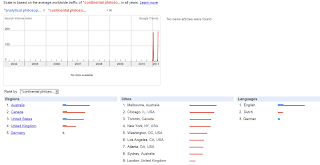
Stanley Rosen's Nihilism is a key book for understanding the nature of the Western Worldview. Both Heidegger and Nietzsche make Nihilism a center piece of their philosophies. Rosen pursues the nature of nihilism by contrasting the philosophies of Heidegger and Wittgenstein as Nihilistic opposites. Nihilism was originally coined as a term by Turgenev in Fathers and Sons, where it basically meant how youth who embraced science did not appreciate traditional norms any longer. From there the meaning of Nihilism morphed into a position that everything was meaningless and basically took the place of skepticism as the strawman to be discredited by philosophers. Nietzsche was the first one to attempt to show it was a central feature of the western worldview, and Heidegger took this up and specified that it was the essence of technology.
Once we begin to understand nihlism we can see that it is one of the core phenomena generated by the Western worldivew, and that it is itself the nihilistic opposite of Emergence. In order to understand this nihilistic and emergent duality of emergence and nihlism within the western worldview we must appropriate the meaning of nihilism, and it seems to me that Rosen has the best definition. Basically Nihilism when two antagonistic forces in society that produce a dynamic of conflict are recognized to be exactly the same thing. If you were caught up in the conflict and suddenly looked at the enemy and said "we confronted the enemy and we were them" then that would be a loss of meaning in your world. This is precisely what happens to Achilles in the Iliad when he realizes that the Greeks are no better than the Trojans when Agamemnon takes his war prize Briseis. He withdraws from the conflict, but then when his friend Patroclus is killed he goes into a berzerker state. Both of his reactions are themselves nihilistic. Thus the Iliad functions as a users manual for living in a Nihilistic worldview. It also tells us about the nature of emergence. And so this fundamental duality is at the core of our epic tradition and needs to be understood by those encompassed by the Western worldview. Stanley Rosen's book on Nihilism clarified the philosophical meaning of this term so it can be a basic tool in our attempts to understand the Western worldview.
References:
http://en.wikipedia.org/wiki/Stanley_Rosen
http://books.google.com/books/about/Nihilism.html
http://en.wikipedia.org/wiki/Nihilism
http://en.wikipedia.org/wiki/Ivan_Turgenev
http://en.wikipedia.org/wiki/The_Question_Concerning_Technology
http://en.wikipedia.org/wiki/Philosophy_of_Friedrich_Nietzsche
http://en.wikipedia.org/wiki/Worldview
http://en.wikipedia.org/wiki/Emergence
http://en.wikipedia.org/wiki/Briseis
http://en.wikipedia.org/wiki/Achilles
http://en.wikipedia.org/wiki/Achilles_and_Patroclus






